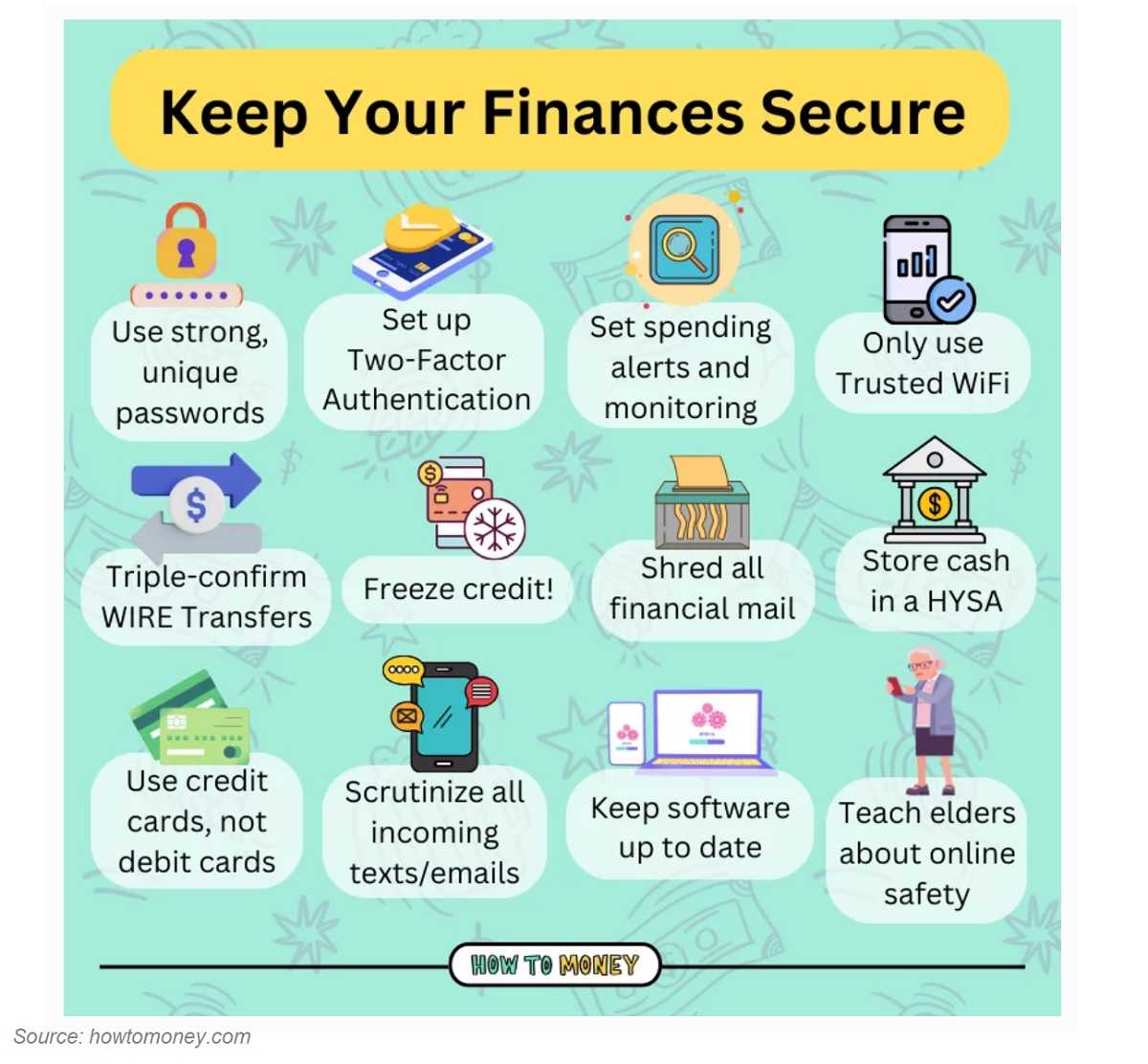Most of us would agree technology makes online banking a breeze. No more trips to the brick-and-mortar, parking, or waiting in line. But with that ease comes the reality that our financial accounts are vulnerable and valuable cybercrime targets. The best answer to that risk is being proactive about your online banking security. This is the first of a two-part look at steps you can take to further secure your own accounts. After all, can you afford not to?
Passwords: Your Account Gatekeepers
There’s a good reason for the hype about using fortified passwords. They really are the gatekeepers to our online accounts, and having a strong, unique password for each account should be a given. The stakes are high if your money is at risk due to a weak password. Below are tips to create those worthy of Fort Knox.
1. Use Random Characters. Whole words are easily guessed, so a mix of lower- and upper-case letters combined with numbers and symbols work best. Avoid using information posted on social media like names of friends, family, or pets, as well as birthdates, anniversaries, or other special dates. Cybercriminals know they’re used in passwords, and they troll social media sites looking for them.
2. The Ideal Password is Eight to Twelve Characters. The longer the password, the more difficult it is to crack. The idea is having a hacker give up on cracking your password and move on to someone else’s account.
3. Regularly Change Passwords. There are always data breaches you’re not aware of where a hacker could already have your password. Stolen passwords could be used today or in the future. Changing them on a regular basis helps keep them from being used successfully.
4. Don’t Store Passwords in Your Browser. Browser security is questionable and that can lead to your passwords being vulnerable to attack. You don’t want to make it easy for a hacker to steal all your passwords in one place. If you need to keep a record of them, make sure that list is not kept where others can access them.

5. Consider Using a Password Manager. If you do, remember some are better than others. A bit of research into what’s available can save a lot of regret. Also, if your password manager is compromised, the hacker gets all passwords stored there, so use with caution.
Additional Security Steps
1. Use Financial Account Alerts. Most financial institutions offer them as a way of letting you know when transactions involving your account happen. You’re instantly aware when account logins, withdrawals and deposits, payment card transactions, and more are made. If an alert is suspicious, immediately contact your financial institution so they can take action.
2. Use 2FA (two-factor authentication) Or MFA (multi-factor authentication). It’s a simple and effective way to add a layer of identity verification for account logins. A numerical code sent to your phone or other device is required input as part of logging-in. A hacker needs to physically have your device to get the 2FA code, along with needing your password and username.
3. Regularly Check Financial Accounts. A once-a-week look at an account catches any unusual transactions, and you should immediately contact your financial institution if you find one. You can place a temporary freeze on the account until you find the best way to resolve it. Even small withdrawals can be a setup to steal much more. Hackers have many ways to grab your money and run, and not checking an account helps them even more.